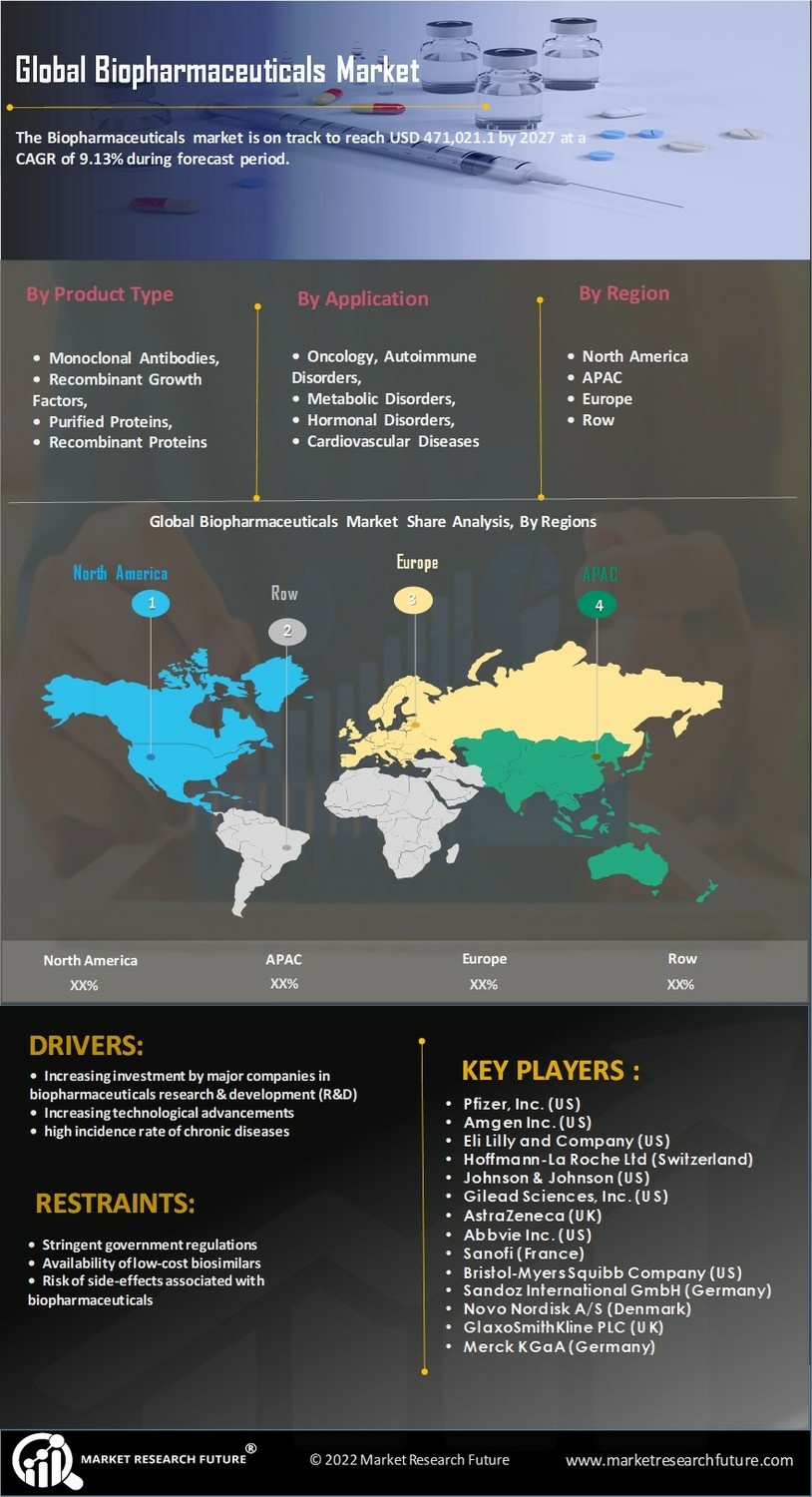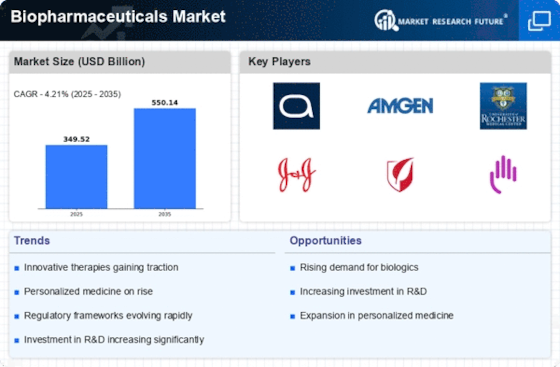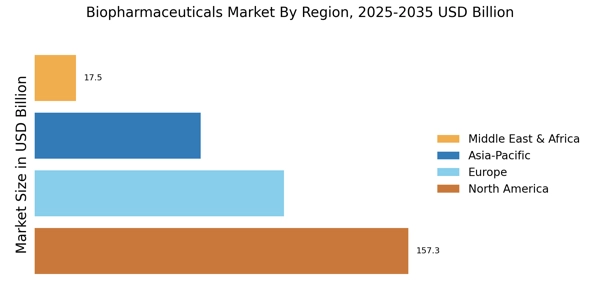Advancements in Biotechnology
Technological advancements in biotechnology are transforming the landscape of the Biopharmaceuticals Market. Innovations such as CRISPR gene editing, monoclonal antibodies, and recombinant DNA technology are enabling the development of more targeted and effective therapies. The market for monoclonal antibodies alone is projected to reach USD 300 billion by 2025, reflecting the growing reliance on biopharmaceuticals for treatment. These advancements not only enhance the efficacy of treatments but also reduce side effects, making them more appealing to both healthcare providers and patients. As biotechnology continues to evolve, the Biopharmaceuticals Market is likely to witness a surge in product offerings and therapeutic options.
Rising Prevalence of Chronic Diseases
The increasing incidence of chronic diseases such as diabetes, cancer, and cardiovascular disorders is a primary driver of the Biopharmaceuticals Market. As populations age and lifestyle-related health issues become more prevalent, the demand for innovative biopharmaceutical therapies rises. According to recent data, chronic diseases account for approximately 70% of all deaths worldwide, underscoring the urgent need for effective treatment options. This trend compels pharmaceutical companies to invest in research and development, leading to the introduction of novel biopharmaceutical products. The Biopharmaceuticals Market is thus positioned to expand significantly as healthcare providers seek advanced solutions to manage these conditions.
Growing Demand for Personalized Medicine
The shift towards personalized medicine is reshaping the Biopharmaceuticals Market. Patients increasingly seek treatments tailored to their genetic profiles, which enhances treatment efficacy and minimizes adverse effects. The market for personalized medicine is projected to reach USD 2 trillion by 2025, indicating a robust demand for biopharmaceuticals that cater to individual patient needs. This trend is prompting biopharmaceutical companies to invest in genomic research and biomarker identification, thereby driving innovation. As personalized medicine continues to gain traction, the Biopharmaceuticals Market is expected to expand, offering more customized therapeutic solutions.
Regulatory Support for Biopharmaceuticals
Regulatory bodies are increasingly supporting the development and approval of biopharmaceuticals, which serves as a significant driver for the Biopharmaceuticals Market. Streamlined approval processes and incentives for orphan drugs and breakthrough therapies are encouraging companies to bring innovative products to market. For instance, the FDA's accelerated approval pathway has facilitated quicker access to life-saving treatments, thereby boosting market growth. This supportive regulatory environment not only enhances the attractiveness of biopharmaceutical investments but also fosters competition among companies, leading to a diverse range of therapeutic options in the Biopharmaceuticals Market.
Increased Investment in Research and Development
Investment in research and development (R&D) is a crucial driver of the Biopharmaceuticals Market. Pharmaceutical companies are allocating substantial resources to discover and develop new biopharmaceuticals, with R&D spending expected to exceed USD 200 billion annually by 2025. This focus on innovation is essential for addressing unmet medical needs and improving patient outcomes. Furthermore, collaborations between biopharmaceutical companies and academic institutions are fostering a conducive environment for groundbreaking research. As a result, the Biopharmaceuticals Market is likely to experience a continuous influx of novel therapies, enhancing its growth trajectory.

















